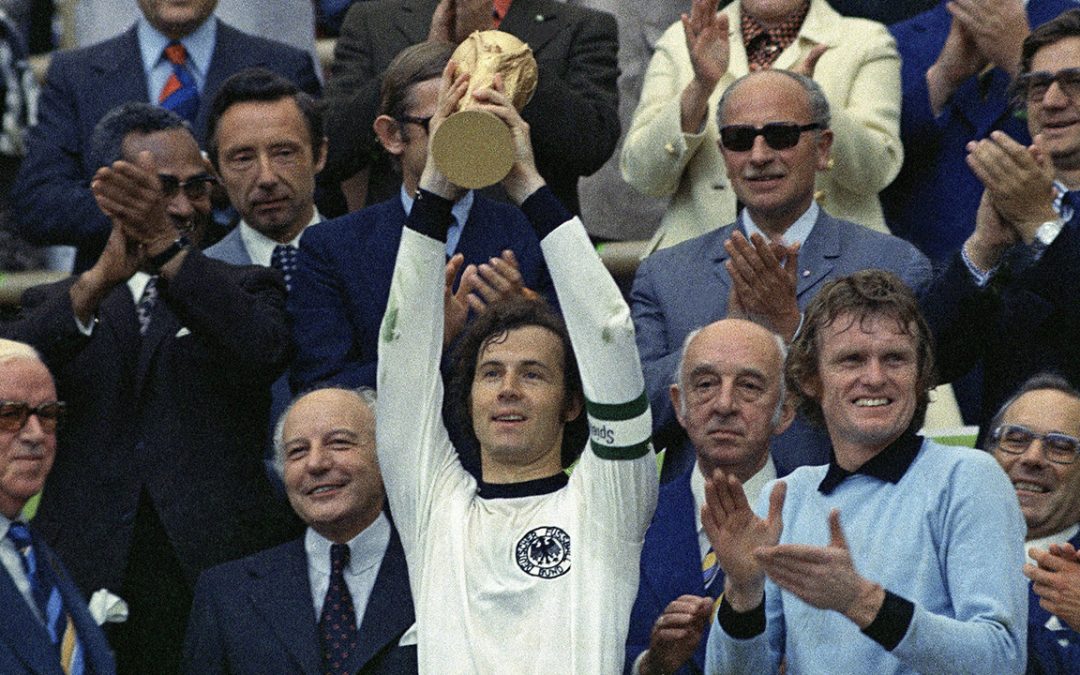West Germany 1974 was when the hosts won a battle of total football. It was the year the new World Cup trophy came along. Let us take a look back how it happened.
Watertight security surrounded the 1974 World Cup in West Germany following the murder of Israeli athletes that shocked the world at the Munich Olympics two years earlier. Finalists Holland, led by the outstanding Johan Cruyff, and Franz Beckenbauer’s West Germany were the leading exponents of the new art which involved players switching positions at will to open up defences. With Pele gone, Brazil were no longer the proponents of playing attractive football at a time Ajax and Bayern Munich were revolutionizing club football in Europe. The 1974 World Cup in West Germany also saw a new format, with the quarters and semi-finals scrapped in favor of two group phases. It also saw the birth of “total football” – the Netherlands of the brilliant Johan Cruyff, and Franz Beckenbauer’s West Germany, were the leading exponents of the new art which involved players switching positions at will to open up defences. The highlight of the first round came when East Germany shocked West Germany 1-0 in Hamburg, Jurgen Sparwasser scoring the goal. It would later emerge that there was plenty of discord within the West Germany camp. The result, however, meant the hosts avoided the Netherlands and Brazil in the next round. “All hell broke loose in our training camp when we lost. Helmut Schon was in the right mood, and we were up till the early hours trying to work out how we had lost. It shouldn’t have happened. We should have beaten them,” said Gerd Mueller, about that defeat, adding, “although with hindsight, it was a good thing we lost. Otherwise, we’d have been in the other group. If we’d won, we’d have been in the same group as Holland and Brazil.”
A team that still treated football as an art form was instead the Netherlands. According to many the best team in the tournament, Netherlands led by Johan Cruyff won five times and draw once until the final. Netherlands that hadn’t been in a World Cup final tournament since 1938, practiced a tactic game style that has been known as total football and was originally initiated by AFC Ajax. Their opponent in the final, West Germany, had been favorites for the title before the tournament thanks to their victory in the European Championship two years earlier (their coach was Helmut Schön, that had been the assistant to Sepp Herberger when West Germany became world champions in 1954). But West Germany’s path to the final wasn’t as smooth as the Netherlands and the very special meeting with East Germany would in fact end with a loss. The Dutch were a delight as they romped into the second stage, and victories over East Germany, Argentina and Brazil secured them a place in the final. There they faced West Germany, who had seen off an impressive, free-scoring Poland in the other group. Barely a minute from the start the Dutch went ahead when Cruyff won a penalty, scored by Johan Neeskens. However, Paul Breitner equalised after 25 minutes and just before half-time Gerd Muller scored the clincher.
![]()

